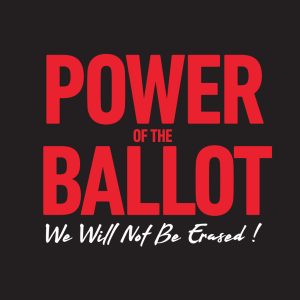In the Aug. 8 special election, Ohio voters decisively rejected Issue 1, which would have required a supermajority of 60% as opposed to the current simple majority of 50% to put an issue on the ballot. But ballot measures have long been a tool that has enabled marginalized communities to have a voice in the say and direction of the state as well as in democracy.
Voters resoundingly defeated Issue 1, but the reason Black voters turned out is not the reason state and national media are reporting. Many state and national media outlets have called the election results a referendum on anti-abortion forces. But for Black voters, this election was bigger and broader than reproductive rights. We understood that Issue 1 would have tanked our hopes for progress in a variety of ways. For instance, if a majority of voters wanted to pass a measure to increase the state minimum wage to $15 per hour or wanted to eliminate qualified immunity for police officers, 41% of voters could cause the measure to fail even though 59% of citizens voted for it to pass.
As important as reproductive freedom is, Black voters were especially motivated by the need to defend democracy. Black voters wanted agency over a host of decisions that impact our lives, and Issue 1 would have undermined such agency. Black people have seen the gradual erosion of democracy at the state and national levels. Many voters believe they have a responsibility not only to the future but to the past; they were voting to ensure a better future for their kids but also to continue the fight their ancestors started decades ago.
Freedom isn’t free, and Black people know this well. We know that there has never been a point in American history when Black people have not had to struggle for access, opportunity or even the right to live free. What is more, we understand that we have a responsibility to work for personal as well as communal uplift.
Relatedly, base-building groups in Ohio – including the one I lead, the Ohio Unity Coalition – engaged Black voters around the importance of ballot measures as a tool to push back on regressive policies promulgated by far-right officials. We told Ohio voters that if Issue 1 passed, it would threaten all future elections where voters can decide on issues as significant to our community as minimum wages, police accountability, education about Black history, reproductive health and voting rights.
Although state and national media has focused on abortion, we didn’t speak to voters around reproductive rights alone because Black people can’t afford to be single-issue voters. We must be concerned with the whole environment in which we live. We are concerned with reproductive rights, but we’re also concerned with voting rights, health equity, education equity, living wages and so many other issues that color our daily lives.
Our strategy and approach worked. The Aug. 8 special election was announced 45 days prior. In 45 days, we engaged Black voters and inspired them to vote. Turnout in some of our largest Black communities in the major cities was over 10%. That is phenomenal for a special election in which voters had just over one month to learn about the election and then vote.
We need the media to see us in the nuance of our existence and politics. Issue 1 would have eroded ordinary Ohioans’ power, enshrined minority rule in the Ohio constitution and led to the silencing of voters. Our fight was always about these things, and it’s time the whole truth is told.
Petee Talley is founder of the Ohio Unity Coalition and Region 5 Director of Coalition of Black Trade Unionists



